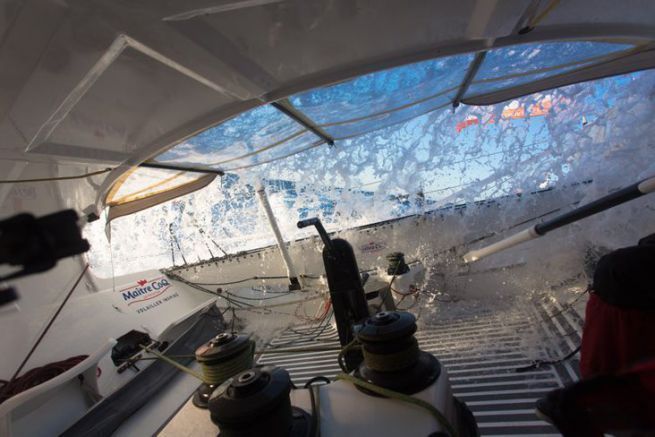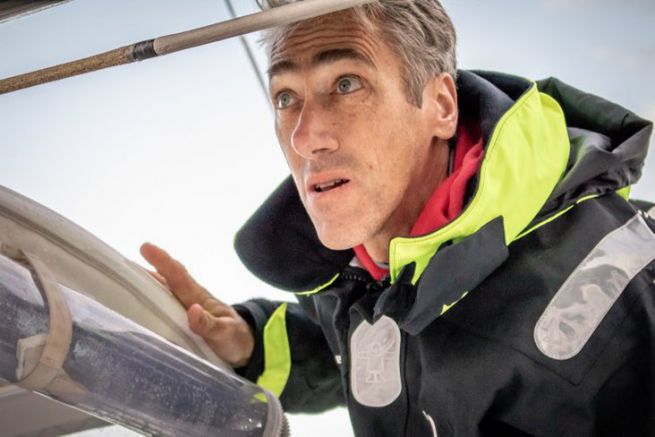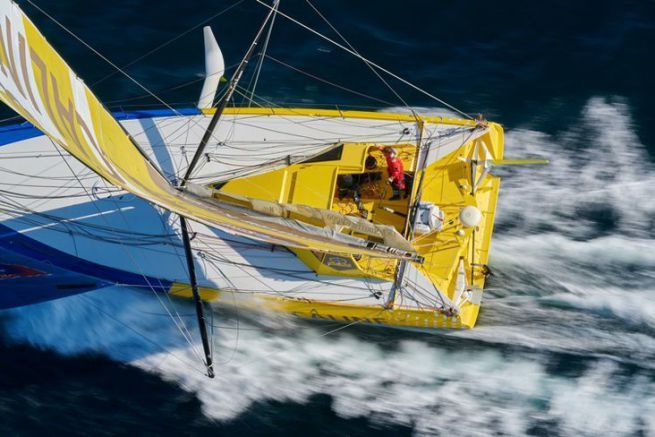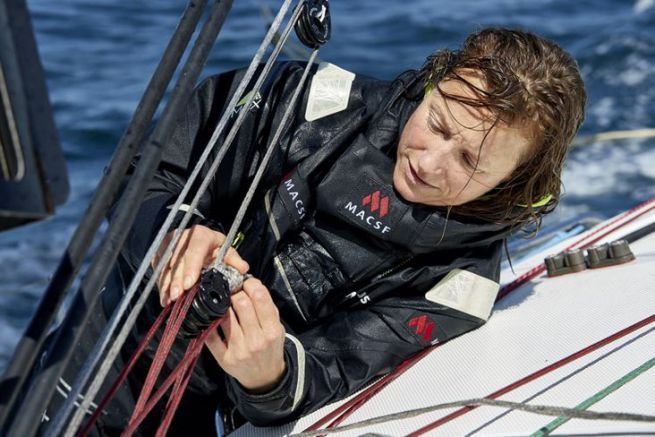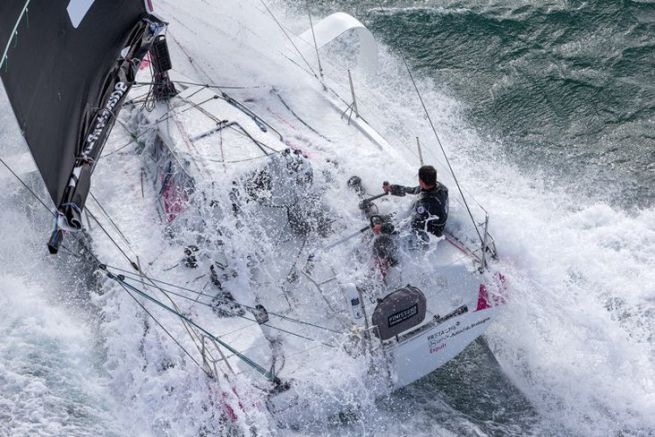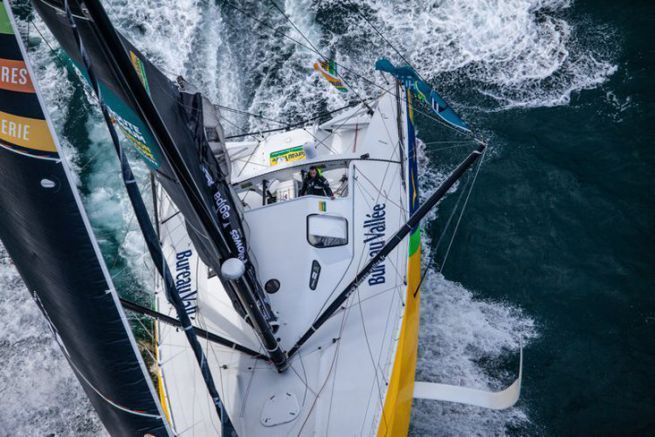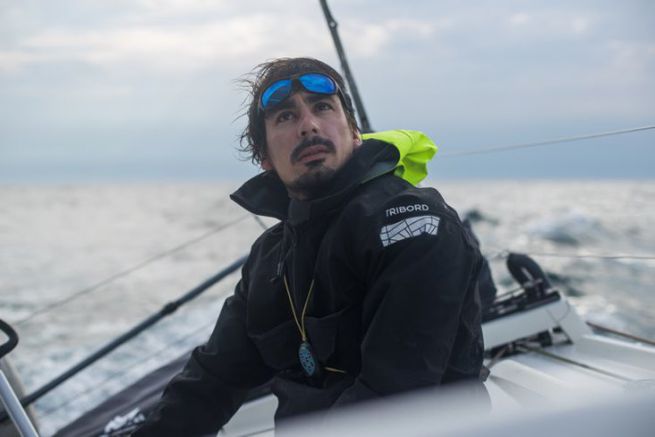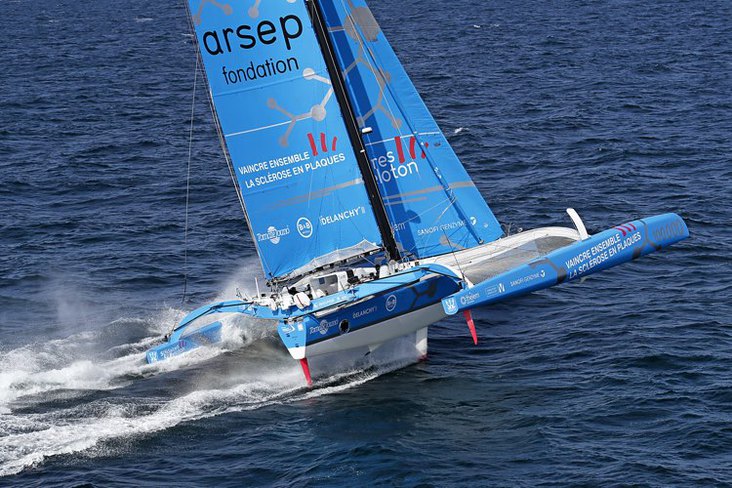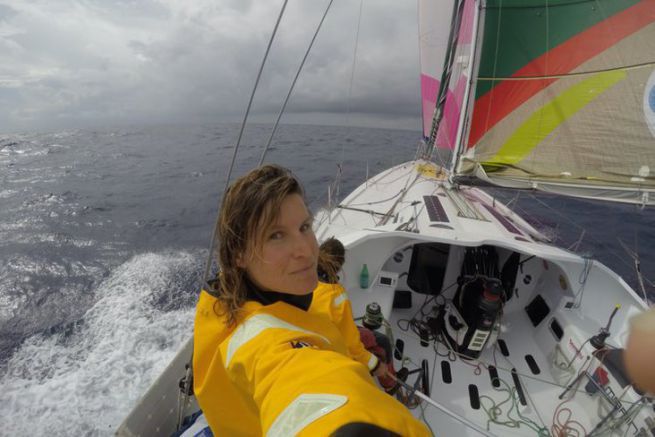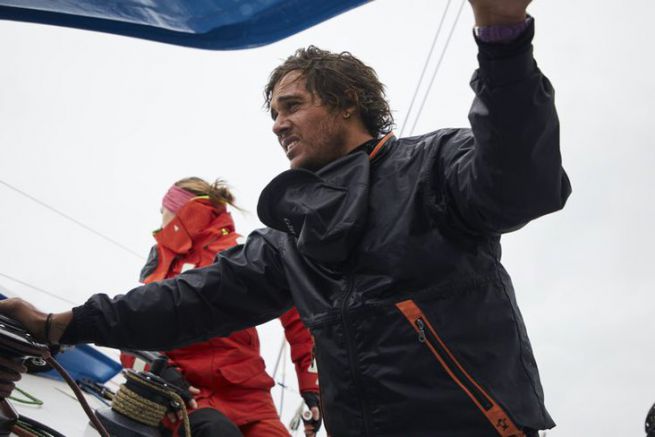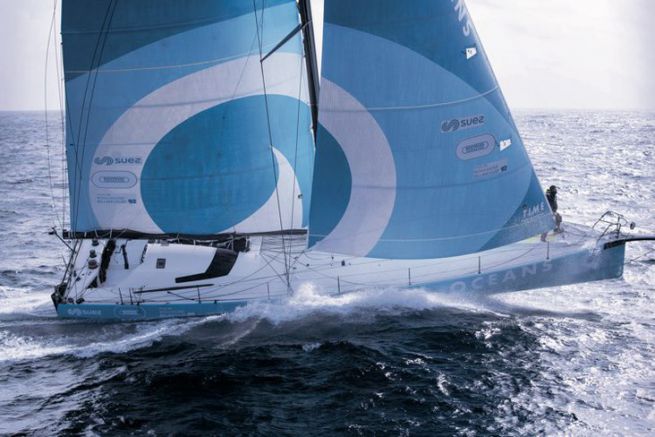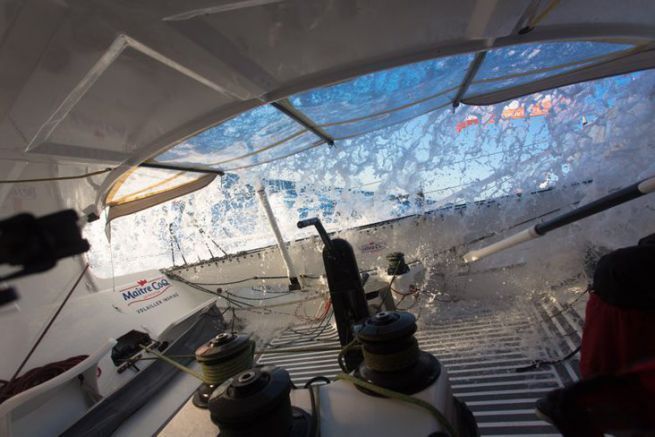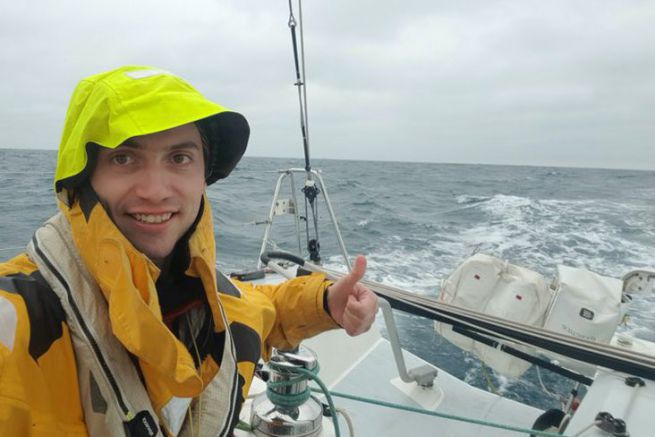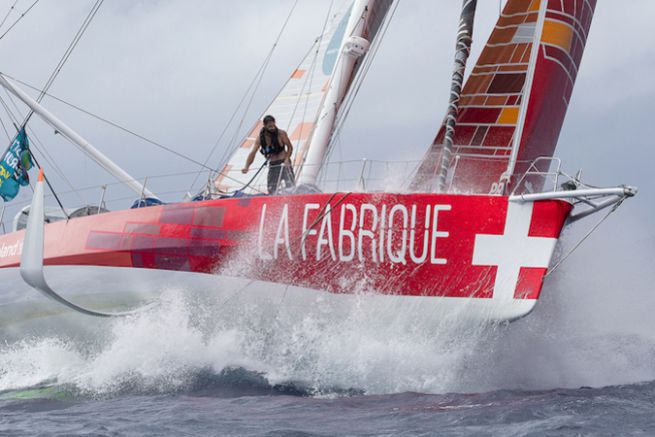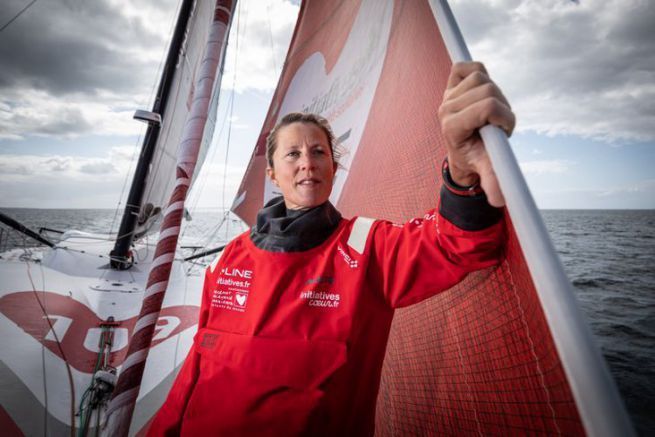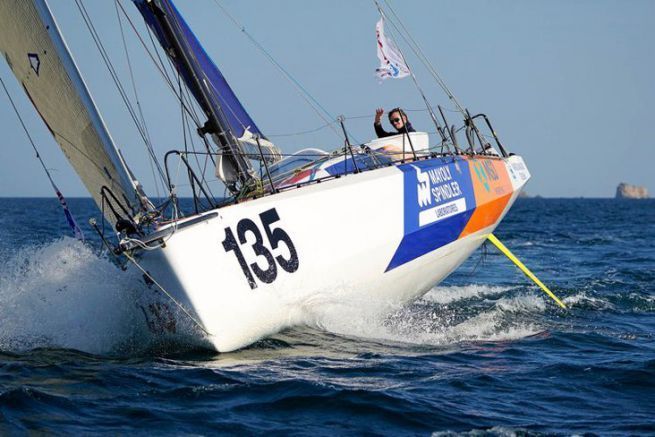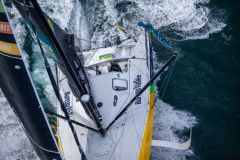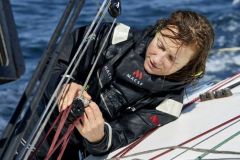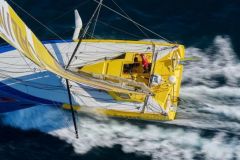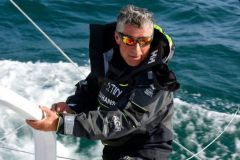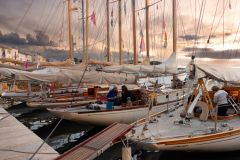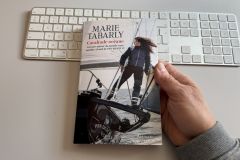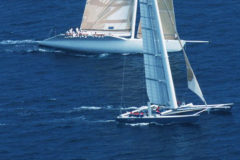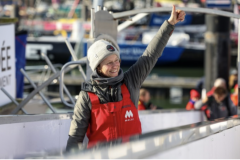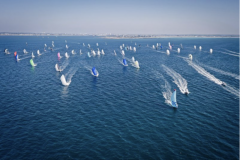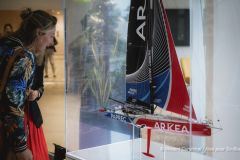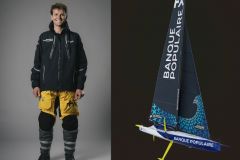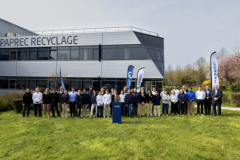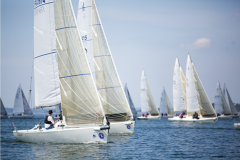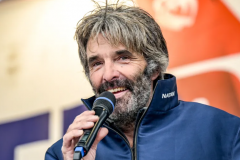The view
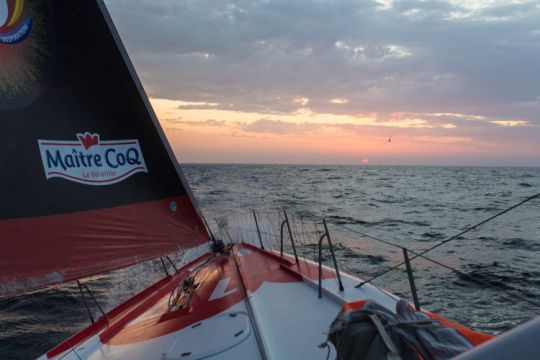
The rippling of the sea, that's what comes to mind right away. A bit of wind, the crests of the waves breaking around the boat. And I'm up high, especially when it's heeling, admiring the delightful and original perspectives, both backwards and forwards: it's a landscape I really like! People sometimes say that the sea is a great desert, but I find, with this uninterrupted succession of waves that make it dance, that it's a lively show... and impressive! It's also very frequent, of course, but I remember one day when it really made an impression on me: it was during the Transat Jacques Vabre in 2015. With my team mate, we went to play near the low pressure centres, which allowed us to get to the front of the race. I have a very clear memory of the colours and lights that were added to this ripple: at the heart of the depression, the grey in particular, the dark. And then, as we came out of it, there were holes in the clouds that let rays of sunshine shine through. And these, on the surface of the sea, created green spots next to the grey masses. As the sky opened up, they began to shine under the light: the contrasts in colour became all the more intense!
The touch
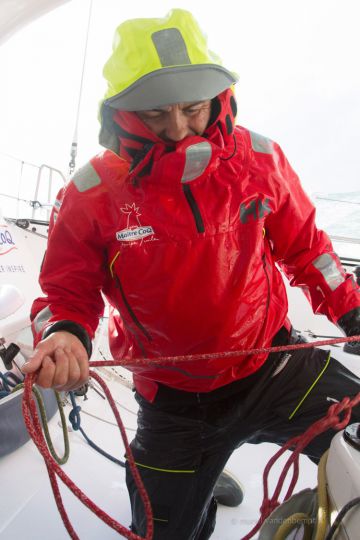
During the race, the hands take quite a blow: water, omnipresent, makes them swell; salt, corrosive, damages them; the cold, sometimes biting, numbs them: the shocks, inevitable, weaken them. So much so that as you sail, you may not have much feeling at your fingertips! It feels like having your hands in ski gloves. So, obviously, we're less precise in our manipulations. In short, we lose a bit of that sense of touch. To spare my hands a little, I put them on the kettle when I'm making coffee or tea. I find that very pleasant. Immediately you feel the warmth, on the palms of course, but not that ... This softness is transmitted throughout the body. I've already felt it several times during transatlantic races, following a Nordic route: the weather conditions are harsh, it's particularly cold, everything's damp... and it lasts a long time. So when, in the middle of the night, my eyes start to sting and I go downstairs to make myself a cup of coffee to hold on to this source of heat, I can assure you, I take full advantage of it! It gives me back my strength instantly.
Hearing
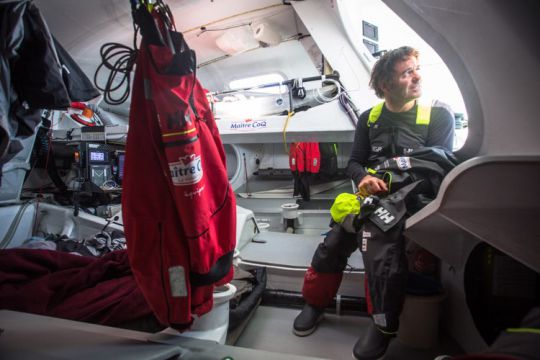
It's one of the most important senses on a racing boat. You're always listening to the boat. Even when you're inside, eating, working, even sleeping. It's THE sound different from what we're used to that will alert us, wake us up. Even on today's IMOCA boats, like aboard my Master CoQ, whose noise discomfort has gone up a notch! The boat is badly trimmed, the sea has changed, the wind has evolved... we can hear all that and more, through the sound of a piece breaking, a halyard banging against the mast, a sail falling, a hull cracking. I remember, for example, the start of the Vende Globe 2008, in the Bay of Biscay, with some tough weather conditions! It was at the end of the day, I was on deck. All of a sudden, without the slightest hint of noise waking me up, a deafening din was heard: a loud, clear noise like a tree with a broken trunk. And then, almost at the same time, all the rigging tumbling down on deck and in the water... And, of course, always, in the background, the stormy sea. I heard, even before I saw, what had just happened. It was my 100-foot mast cracking. That day, ten boats suffered the same fate! The moment you understand is a stealthy moment, because then comes the moment when you have to react! The mast, like a battering ram, hit the hull and risked damaging it. I then had to try to save the equipment. But when it comes to the mast and sail, on this type of boat, everything is heavy, big, cumbersome. We realise that our little arms won't be enough to get everything back on board. So we try to pull as many things up as possible, like the sails... and then we cut off what connects to the rest, to save the boat and the man. That dismasting really overwhelmed me. Everything was radical: the noise of course, the sight of the broken mast, too... But also the feeling I had afterwards, as it's the end of the project, the end of the dream, the end of the adventure, the end of the race... It's a bit too many ends, in the end!
Taste
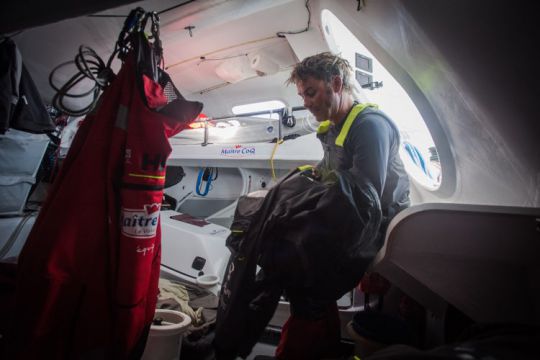
At sea, that's not a sense that's much in demand. It's as if you're sanitized in terms of taste, and smell for that matter. It's a bit of a shame for me, as I enjoy eating well and tasty little dishes! What comes to mind in this regard is the total lack of flavour of the fresh water I drink during offshore races. Of course, it's impossible to take enough water with you for the whole duration of the race. So I use a desalinator: an electric pump that sucks in seawater and then separates the water from the salt by means of a filter. I don't know why, this water is really tasteless. When you're ashore, you have the impression that the water has no taste, but in fact it does: it's more or less salty, for example... In any case, it doesn't have the blandness of the water coming out of the desalinator! Usually, we add mineral salts to it for our physical shape, but it is not them that give taste. So I also add lemon juice... to give it a little more flavour!
The sense of smell
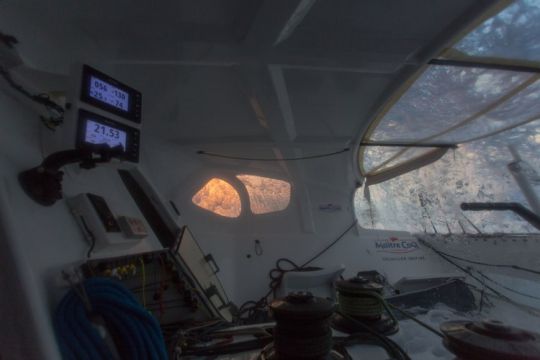
Of course, there's that unmistakable smell of boots: they keep the nauseating scent of moisture well contained. I almost hate my own smell when I smell that! Even more so when I'm forced by difficult weather conditions to keep them on my feet for a long time, sometimes sleeping with them... After a few days, you're happy to be running alone! Fortunately, there are moments during the races when I breathe with full lungs and with pleasure. In the middle of the ocean, the smells don't abound, and that sense falls asleep a little bit in the long run. So when it's in demand again... In 1999 and then in 2001, I ran the mini transat in Mini 6.50. Well, in the end, without yet seeing the islands, almost 24 hours before touching down, I knew I was arriving in the West Indies. They smell so strong... When you're downwind of them, it's intense: the pine, the flowers... in short, nature! In any case, these smells are in such contrast with what you've had to breathe at sea that you can't be insensitive to them!
What about fear?
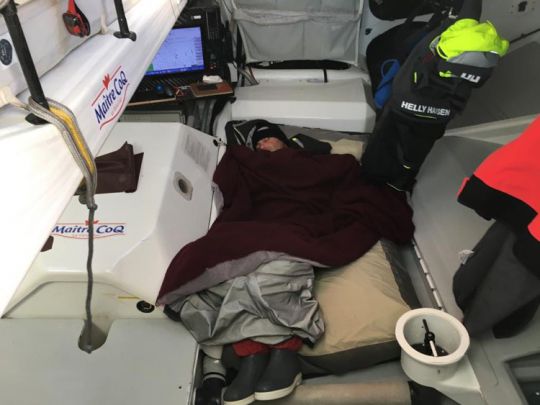
It is in retrospect, once moored in the harbour, that we say "wow"! When you're in the action, you don't really realize it. I remember, during the Route du Rhum in 2014, I really put myself in danger. It's 2am, it's the first night of the race. I'm crossing the Channel. The wind is really picking up. I want to drop down... but a piece is stuck at the top of the mast. The return doesn't work. All I have to do now is go myself... To avoid risking a collision with the other competitors, I let them get away in front of me. And I climb: a complicated chore! When I finish, I start to go down and there, a strong shock, sudden, unexpected. I only understand it when I see the light from the boat that has just hit me. A late competitor that I hadn't seen on the radar and hadn't located me either. After having solved a first major problem at the top of the mast, a second one fell on me before I'd even completely come down! My rhythm
heart must have jumped! Anyway, my first instinct was to make sure I was okay. I'd slashed myself with my knife at the moment of shock. I also checked the one on my boat. Then I called the person who had hit me: everything was fine on his side as well, fortunately.
